第10章 PREFACE(10)
The Malays, like the Japanese, have a most rigid epistolary etiquette, and set forms for letter writing. Letters must consist of six parts, and are so highly elaborate that the scribes who indite them are almost looked upon as litterateurs. There is an etiquette of envelopes and wafers, the number and color of which vary with the relative positions of the correspondents, and any error in these details is regarded as an insult. Etiquette in general is elaborate and rigid, and ignorant breaches of it on the part of Europeans have occasionally cost them their lives.
The systems of government in the Malay States vary in detail, but on the whole may be regarded as absolute despotisms, modified by certain rights, of which no rulers in a Mohammedan country can absolutely deprive the ruled, and by the assertion of the individual rights of chiefs. Sultans, rajahs, maharajahs, datus, etc., under ordinary circumstances have been and still are in most of the unprotected States unable to control the chiefs under them, who have independently levied taxes and blackmail till the harassed cultivators came scarcely to care to possess property which might at any time be seized. Forced labor for a quarter of the laboring year was obligatory on all males, besides military service when called upon.
Slavery and debt bondage exist in all the native States; except in Selangor and Sungei Ujong, where it has recently been abolished, as it is hoped it will be in Perak. The slaves of the reigning princes were very easily acquired, for a prince had only to send a messenger bearing a sword or kris to a house, and the parents were obliged to give up any one of their children without delay or question. In debt slavery, which prevails more or less among all classes, and has done a great deal to degrade the women of the Peninsula, a man owing a trifling debt incurred through extravagance, misfortune or gambling, can be seized by his creditor; when he, his wife, and children, including those who may afterwards be born, and probably their descendants, become slaves.
In most of the States the reigning prince has regular officers under him, chief among whom are the Bandahara or treasurer, who is the first minister, chief executive officer, and ruler over the peasantry, and the Tumongong or chief magistrate. Usually the throne is hereditary, but while the succession in some States is in the male line, in others it is in the female, a sister's son being the heir; and there are instances in which the chiefs have elected a sultan or rajah. The _theory_ of government does not contain anything inherently vicious, and is well adapted to Malay circumstances. Whatever is evil in practice is rather contrary to the theory than in accordance with it.
The States undoubtedly have fallen, in many ways, into evil case; the privileged few, consisting of rajahs and their numerous kindred and children, oppressing the unprivileged many, living in idleness on what is wrung from their toil. The Malay sovereigns in most cases have come to be little more than the feudal heads of bodies of insubordinate chiefs, while even the headmen of the villages take upon themselves to levy taxes and administer a sort of justice. Nomadic cultivation, dislike of systematic labor, and general insecurity as to the boundaries and tenure of land, have further impoverished the common people, while Islamism exercises its usual freezing and retarding influence, producing the fatal isolation which to weak peoples is slow decay.
When Sir A. Clarke was appointed Governor of the Straits Settlements in 1873 he went to the Curator of the Geographical Society's library in quest of maps and information of any kind about the country to which he was going, but was told by that courteous functionary that there was absolutely no information of the slightest value in their archives.
Since then the protectorate which we have acquired over three of the native States and the war in Perak have mended matters somewhat; but Mr. Daly, on appearing in May last before the same Society with the map which is the result of his partial survey, regrets that we have of half of the Peninsula "only the position of the coast-line!" Of the States washed by the China Sea scarcely anything is known, and the eastern and central interior offer a wide field for the explorer.
The letters which follow those written from China and Saigon relate to the British settlements in the Straits of Malacca, and to the native States of Perak, Selangor, and Sungei Ujong, which, since 1874, have passed. under British "protection." The preceding brief sketch is necessarily a very imperfect one, as to most of my questions addressed on the spot and since to the best informed people, the answer has been, "No information." The only satisfaction that I have in these preliminary pages is, that they place the reader in a better position than I was in when I landed at Malacca. To a part of this beautiful but little known region I propose to conduct my readers, venturing to hope for their patient interest in my journeyings over the bright waters of the Malacca Straits and in the jungles of the Golden Chersonese.
I. L. B.